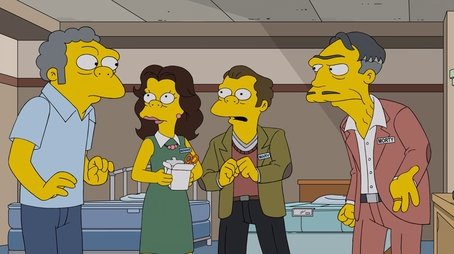
Sorry, we have not watched this yet.

Homer and Marge follow Moe after the bar closes early and discover him and his father fighting. The Simpsons, after finding out that Moe has been excommunicated from his family for years, attempt to bring them back together.
Sorry, we have not watched this yet.